As a lover of books and a lover of history, I found Adam Smyth’s The Book-Makers a delight. By zeroing in on a dozen and a half practitioners of the trade, Smyth gives us both a happy overview and fascinating stories of these often quirky individuals. My full review appears in the January-February 2025 edition of Christianity Today, which can also be found online. Here are a couple parts of the review that the editors left on the cutting room floor.
The chapter on an early bookbinder, William Wildgoose (yes, that really was his name) begins and ends with the tale of a wayward volume that was first housed in the famous Bodleian Library in Oxford, only to return unexpectedly three centuries later. In 1905 a young man comes in wanting advice on rebinding his ancient book. When the sub-librarian and assistant librarian inspect it closely—and then more closely!—they discover that this was once in the Bodleian’s collection, sold off as new printings became available. The book has been remarkably preserved through generations. And like someone who found a priceless pearl in a field, the Bodleian raises an enormous sum now equivalent to $300,000 to buy it back. The volume? Shakespeare’s First Folio, bound by William Wildgoose in 1623.
While zines go back a hundred years, Smyth features examples of the last few decades. The creators of these periodicals intentionally positioned them outside mainstream publishing in content and production values, often being photocopied and stapled. They knew that online existed, but they were committed to the tangibility, the physicality of their publications. They believed it provided a more multi-sensual experience that is not diluted by the digital.
Perhaps the author chose to highlight them for this very reason, as Smyth’s volume is in many ways a celebration of the physical book in all its dimensions.

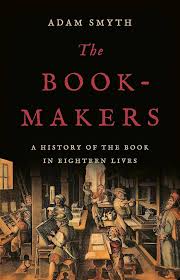

 Some people in this country say our government is so bad it would be better to throw it away and start over. After all, things couldn’t get any worse. If we are tempted this Independence Day to think that we live in bad times, this story reminds us to be grateful for what we have—for things could be worse, much worse.
Some people in this country say our government is so bad it would be better to throw it away and start over. After all, things couldn’t get any worse. If we are tempted this Independence Day to think that we live in bad times, this story reminds us to be grateful for what we have—for things could be worse, much worse. In his book
In his book 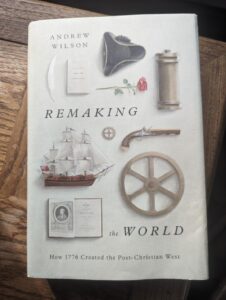
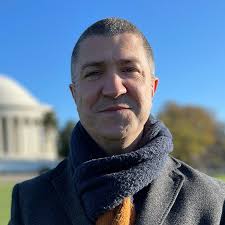 Wilson closes with three Christian themes from the 1770s to help navigate the weird world that decade has bestowed on us.
Wilson closes with three Christian themes from the 1770s to help navigate the weird world that decade has bestowed on us. Today we live in what Tom Wolfe called the “Me Generation” and what David Brooks labeled in The Road to Character as the age of “the Big Me.” Yet, contrary to popular opinion, our sinful nature is, as Chesterton once observed, the only Christian doctrine that is empirically verifiable.*
Today we live in what Tom Wolfe called the “Me Generation” and what David Brooks labeled in The Road to Character as the age of “the Big Me.” Yet, contrary to popular opinion, our sinful nature is, as Chesterton once observed, the only Christian doctrine that is empirically verifiable.*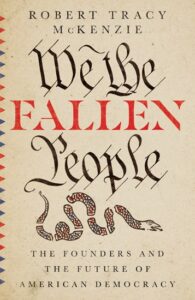
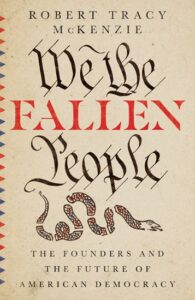
 While those of us who are committed Christians are clearly called to support the causes of justice, this should not be at the cost of bearing witness to the kingdom. Indeed, many conservative Christians claim that the most important thing they can do is spread the gospel of Jesus Christ. Yet they seem quite willing to sacrifice that on the altar of political power.
While those of us who are committed Christians are clearly called to support the causes of justice, this should not be at the cost of bearing witness to the kingdom. Indeed, many conservative Christians claim that the most important thing they can do is spread the gospel of Jesus Christ. Yet they seem quite willing to sacrifice that on the altar of political power.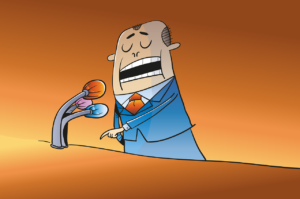 Another problem he spotted is also eerily familiar. Elected officials regularly offered simplistic answers which cannot hold in the face of complex problems. “An idea that is clear and precise even though false,” Tocqueville observed, “will always have greater power in the world than an idea that is true and complex” (p. 194). That is so whether the ideas come from the right or the left.
Another problem he spotted is also eerily familiar. Elected officials regularly offered simplistic answers which cannot hold in the face of complex problems. “An idea that is clear and precise even though false,” Tocqueville observed, “will always have greater power in the world than an idea that is true and complex” (p. 194). That is so whether the ideas come from the right or the left.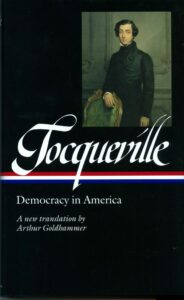 Alexis de Tocqueville’s classic
Alexis de Tocqueville’s classic 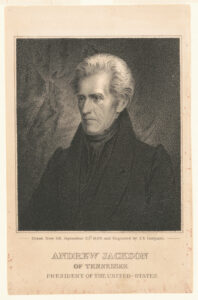 First, he “ran against Washington DC,” proclaiming himself the outsider who could fix a broken system. Second, he developed a populist strategy which many have followed (both liberals and conservatives) ever since.
First, he “ran against Washington DC,” proclaiming himself the outsider who could fix a broken system. Second, he developed a populist strategy which many have followed (both liberals and conservatives) ever since. 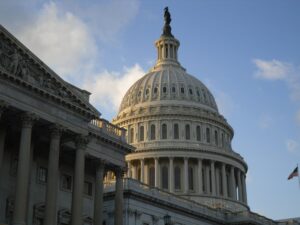 It may sound strange that they distrusted democracy, but it explains why originally the Constitution called for senators to be elected indirectly by the state legislators. It’s also why they didn’t want the President elected directly but through the Electoral College.
It may sound strange that they distrusted democracy, but it explains why originally the Constitution called for senators to be elected indirectly by the state legislators. It’s also why they didn’t want the President elected directly but through the Electoral College.